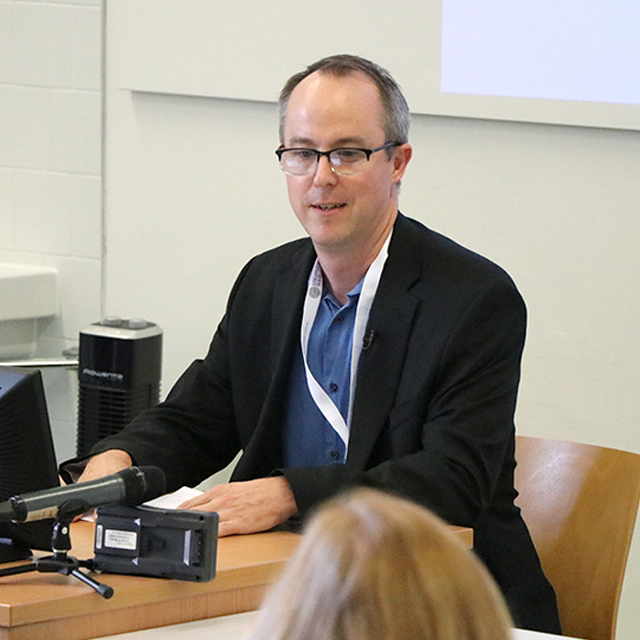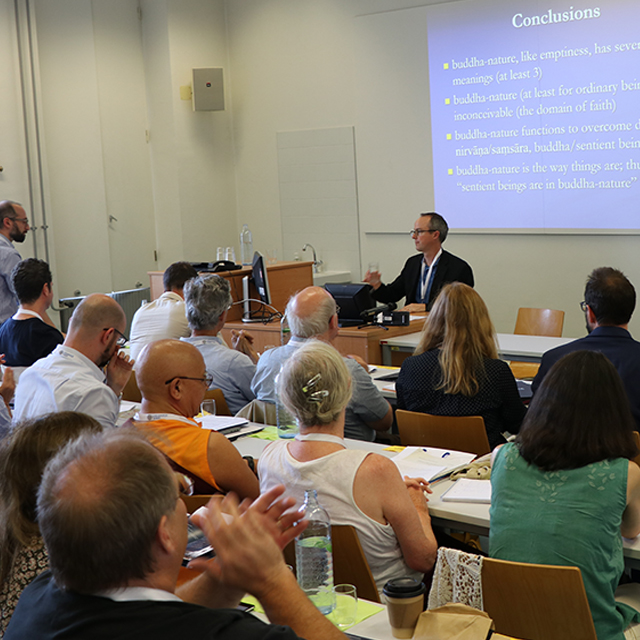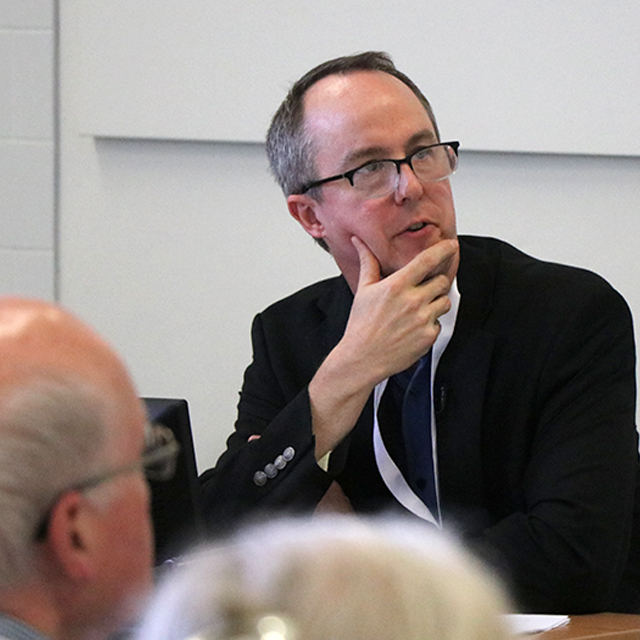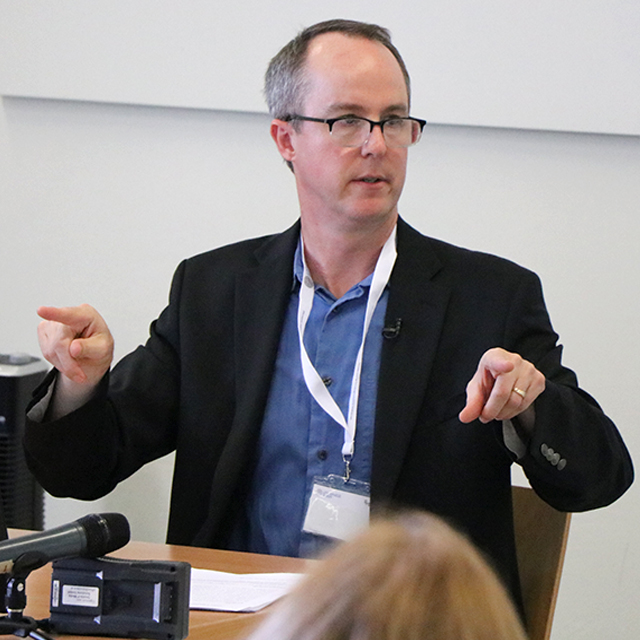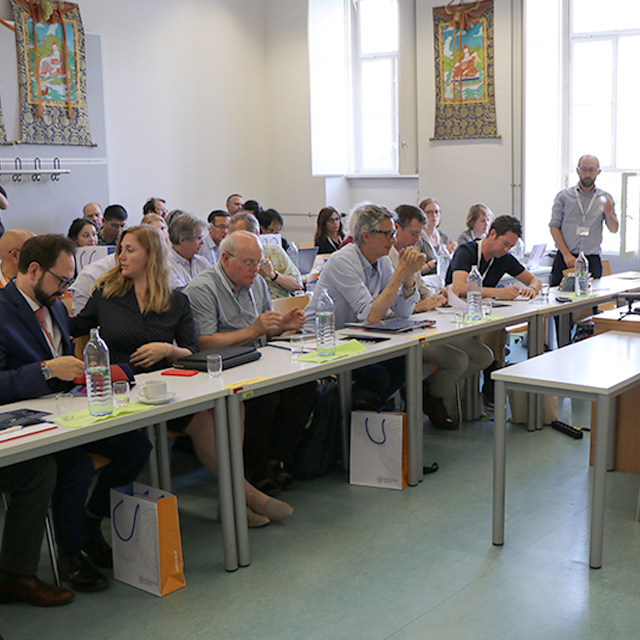Sentient Beings Within: Buddha-Nature and the Great Perfection
This paper describes the status of a sentient being in the buddha rather than how the buddha, or buddha-nature, exists in sentient beings. It focuses in particular on how buddha-nature is interpreted by Mi pham (1846-1912) in light of his tradition of the Great Perfection (rdzogs chen). The qualities of a buddha, as present or not at the time of a sentient being, is an issue closely associated with Madhyamaka debates in Tibet around “other-emptiness” (gzhan stong) and “self-emptiness” (rang stong). A position that accepts that the qualities of the buddha are primordially present, unconditioned, and thus not newly produced, is closely connected to the affirmation of an “other-emptiness” view. While Mi pham accepts this position, he also qualifies his assertion by emphasizing the way that the buddha-nature is also empty, and by making a distinction between the way things are (in which all of the buddha’s qualities are primordially present), and the way things appear (in which the qualities of a buddha are newly produced). This paper considers the way his unique treatment of buddha-nature reflects his legacy of the Great Perfection.
Event: Vienna Symposium 2019 – Paper Presentation
Date: July 17, 2019 – 3:15 pm
Speaker: Douglas Duckworth
Topics: Buddha Nature, Great Perfection, Sentient Being

Douglas Duckworth
Temple University
Douglas Duckworth is Assistant Professor in the Department of Religion at Temple University. He is the author of Mipam on Buddha-Nature: The Ground of the Nyingma Tradition (SUNY, 2008) and Jamgön Mipam: His Life and Teachings (Shambhala, 2011). He also introduced and translated Distinguishing the Views and Philosophies: Illuminating Emptiness in a Twentieth-Century Tibetan Buddhist Classic by Bötrül (SUNY, 2011).

